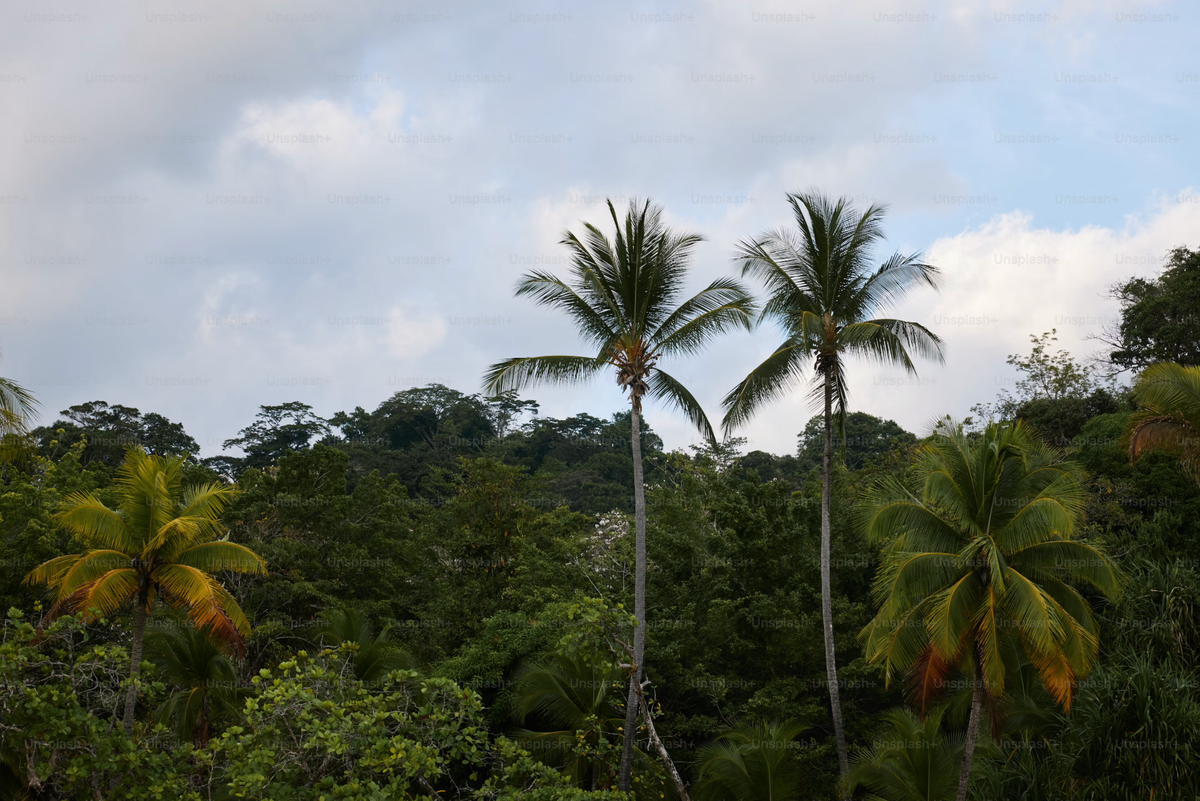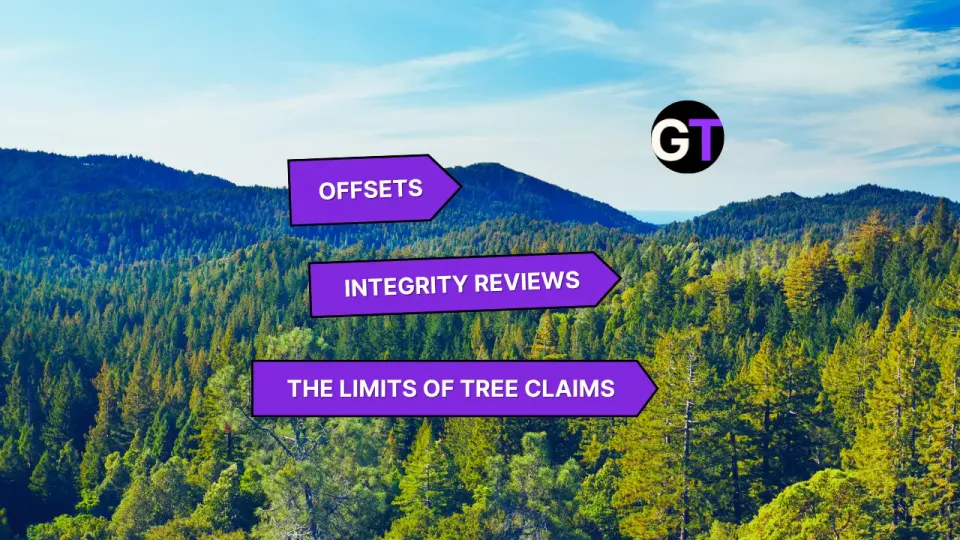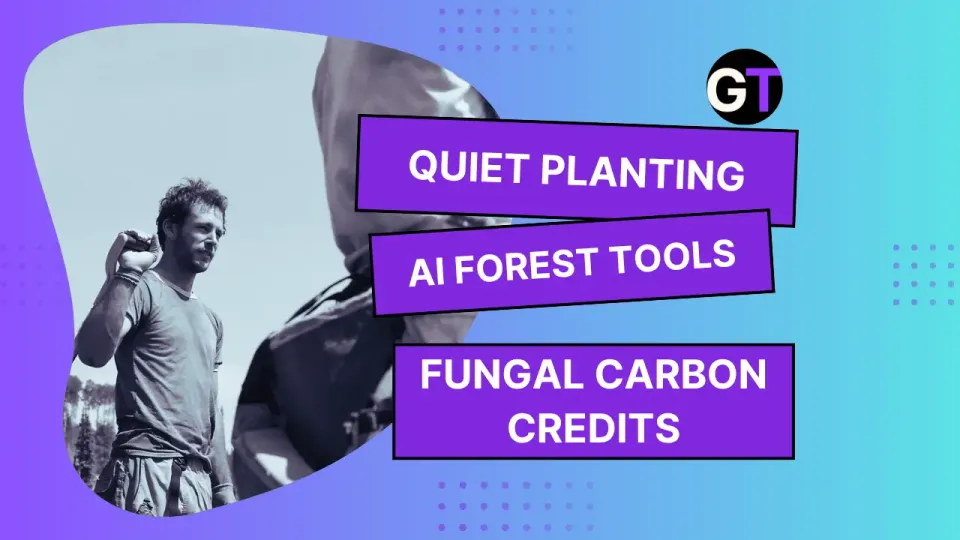Inequality in Tropical Forest Data Collection
Moving from an extractive system to one of collaboration is key...

Unequal Access, Unequal Rewards: The Forgotten Data Collectors in Tropical Forest Research
Data on tropical forests is crucial for scientific research, government policies, and the lucrative carbon credits market. Yet, those who collect this data—often local field workers, students, and technicians—are frequently excluded from the benefits.
Despite their crucial role in collecting data that informs the calculated value of ecological conservation efforts, many face harsh working conditions and receive little to no recognition or financial rewards.
Picture this: a local field worker trekking through the dense forests of India, facing the very real threat of wild boar attacks, all while collecting crucial data that will fuel future restoration efforts—yet receiving little to no recognition or proper compensation. This scenario is not hypothetical; it is a stark reality for many data collectors.
A 2022 paper by Phillips et. al. highlights these inequities within the global forest data ecosystem, showing how "FAIR" data (findable, accessible, interoperable, and reusable) can often be unfair to those on the ground.
Journalist Rishika Pardikar explored this issue in an article, and I interviewed her to gain a deeper understanding of the human costs behind tropical forest data collection.
The Hidden Costs of Forest Data Collection
While open-access data is widely praised for promoting transparency and collaboration, it often overlooks the hardships and contributions of field workers. Many of these individuals face job insecurity, exposure to life-threatening risks, and exclusion from the intellectual and financial rewards of their labour.
In many cases, scientists and organizations in the Global North benefit the most, using this data for academic papers or commercial purposes, while the data collectors themselves remain marginalized.
When I asked Rishika specifically about the conditions for workers who collect field data, she elaborated:
“In countries like India or others that are poorer, scientists—whether local or from the Global North—often don’t engage local communities with formal contracts. These workers are hired for a few days and then laid off, only to be rehired later. These aren’t secured jobs; it’s a very extractive relationship from the start, and they face significant risks.”
These risks are often severe. Rishika recounted frequent stories of disease, long days in unsterile conditions, and even life-threatening encounters:
“Elephant attacks are routine. Wild boars too. These animals are small but extremely dangerous, and there’s little to no discussion about these hazards.”
Ground Truthing Satellite Data
While satellite data plays a crucial role in monitoring forests, it has limitations when it comes to assessing fine-scale details, such as tree health or pest infestations.
Ground-truthing by local field workers is essential to validate and complement satellite observations, ensuring the accuracy of carbon sequestration measurements. As Rishika emphasized:
“There is an amount of ground-truthing necessary. Satellites can’t provide data at the smallest scale. They might show you where rubber plantations are, but they won’t tell you the health of the forest or whether pests are attacking. For that, you need people on the ground.”
We can’t quite substitute for boots on the ground yet. We cannot automate the calculation of how much carbon we are sequestering - not if we want an accurate estimate.
Though technological advancements are making this laborious process easier, the human element is very necessary, and this labour must be appropriately valued.
Drivers of Demand
When I asked Rishika why workers are sent into these dangerous remote areas, she guided me through the main actors driving this demand:
“There are local, national, and international interests. Locally, if you’re mapping how much forest area a state or protected area has, you need to collaborate with people on the ground. Nationally, forest mapping for surveys or boundary demarcation also requires this data. On the international level, the demand comes from carbon credits or just general forest data. The interest in tropical forests is global.”
Open forest data is critical for efforts to restore ecosystems, especially in areas heavily affected by logging or deforestation. For example, a two-decade experiment in Sabah, Malaysian Borneo, revealed that human-assisted restoration of logged forests can speed up ecosystem recovery. Researchers found that planting a diverse range of tree species increased biomass and forest complexity, which may enhance carbon sequestration.
These findings highlight the importance of on-the-ground data for both carbon accounting and understanding how best to restore ecosystems.
Lack of Recognition
This issue reflects broader concerns about fairness in forest data collection practices. In some cases, field workers from tropical forest regions who gather this vital information do not always receive formal recognition or compensation equal to their contributions. These workers also face significant risks, including armed conflict, natural disasters, and gender-based violence.
The broader issue of "parachute science" also plays a role here, where researchers from wealthier nations conduct studies in the Global South without meaningfully involving local experts. Between 1973 and 2017, only 30% of papers on African Earth sciences included African authors, despite being based on African fieldwork, according to Out of Africa: The underrepresentation of African authors in high-impact geoscience literature by North et. al.
The issue goes beyond a lack of co-authorship or acknowledgment in academic papers. Local workers possess empirical knowledge of the forest that can provide insights beyond mere data collection. By excluding their contributions, studies miss out on valuable perspectives. Rishika elaborates:
“Their names aren’t just missing from co-authorships, but often even from acknowledgments. Why must they only be data gatherers? These people have lived in these forests for decades. Their experience is far more valuable than any statistical analysis or complex models, and the scope of these studies would be far richer if their knowledge was included.”
How to Fix It: Making FAIR Data Truly Fair
To address these inequities, long-term, equitable collaborations between data collectors and users are critical. Financial security, co-authorship on publications, and educational opportunities for local scientists can help shift the balance. Investment in local training programs is essential to ensure that those responsible for data collection are also empowered to engage in the scientific process.
Shifting from an extractive model to a more collaborative one will require changes at multiple levels. Governments and research institutions could implement policies that ensure local workers are properly compensated, credited, and involved in the scientific process. Funding agencies could prioritize projects that promote fair treatment of all contributors, ensuring that data collection is not just FAIR but also ethical.
As Rishika noted, ensuring that this data is findable, accessible, interoperable, and reusable is essential—but so is making sure the collection process is fair to the people risking their lives to gather it. We must be careful about the spectrum of openness and recognize the risks involved in revealing too much information about vulnerable ecosystems.
She cites an example from Phillips of a forest plot containing mahogany trees in the Amazon. Making the exact location of these trees public could endanger the species and the communities protecting them.
“FAIR is a great concept, but it must go beyond just making data available. We need ethical considerations about who collects the data and who benefits from it.”
Conclusion: A Call for Ethical FAIR Practices
Ensuring data is findable, accessible, interoperable, and reusable is important, but so is making sure that the collection of this data is fair to the people risking their lives to gather it. As the global demand for forest data continues to grow, especially in the context of carbon credits, it’s time to recognize and properly compensate the local workers whose contributions make it all possible. Moving from an extractive system to one of collaboration is key to creating a more just and sustainable future for both tropical forests and the people who depend on them.




